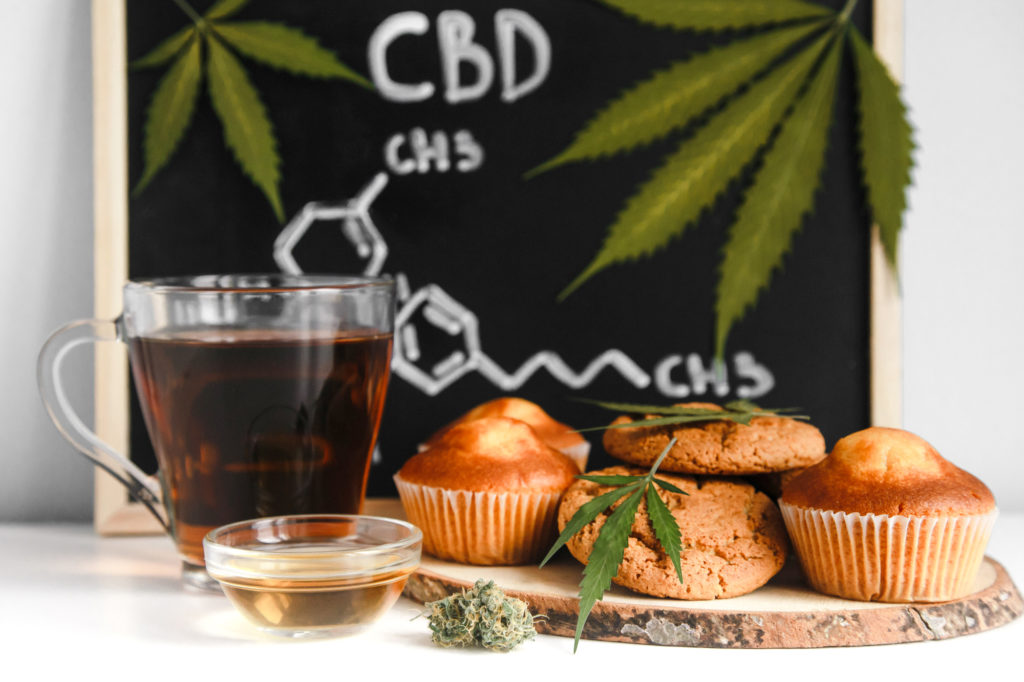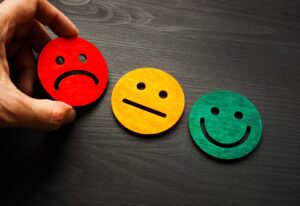Not much thought is given to ancillary CBD liability. Why is that? Probably because the Food and Drug Administration (“FDA”) hasn’t taken any serious enforcement action against any company or individual that aids and abets violations of the Food, Drug & Cosmetic Act (the “Act”) when it comes to CBD. Still, secondary CBD liability under the Act isn’t pretty. And if you’re a company or individual that’s helping other companies or individuals make, sell, or distribute CBD products that violate the Act, you’re actually as guilty as they are under federal law.
FDA and CBD
For a while, CBD stakeholders truly believed that the FDA was prepared to regulate the robust CBD market in the U.S. That, however, will not come to pass where as of January 26, 2023, the FDA concluded that it will NOT regulate CBD foods or dietary supplements. The FDA is punting that task to Congress, which essentially means CBD laws and regulations will either never happen or they’re a far, far way off.
What all of that means is that the status quo remains intact: hemp-derived CBD is not an illegal controlled substance under U.S. law, but it also isn’t a supplement and it cannot be an ingredient in food and beverages for humans or pets without violating the Act. And marketing any bodily or curative effects of CBD was (and still is) off limits.
CBD liability for CBD retailers to date has taken the shape of enforcement letters from the FDA. See here for the most recent examples. Those letters get a massive shoulder shrug from the CBD industry on the whole. Especially since a multitude of states actually allow CBD to be added to food and beverages in conflict with the Act.
FDA and the enforcement spectrum
Many in the CBD industry may not be aware of the risk spectrum when it comes to CBD liability with the FDA. Per the FDA’s own guidance, this is how it tees up enforcement, generally:
- Warning Letters. These are sent to the individuals or firms, advising them of specific noted violations. These letters request a written response as to the steps which will be taken to correct the violation. These letters constitute one form of warning that can be issued under current Agency policy.
- Seizure of CBD products. An action brought against an FDA-regulated product because it is adulterated and/or misbranded within the meaning of the Act. The purpose of such an action is to remove specific violative goods from commerce.
- Injunction from CBD product sales. An order by a court that requires an individual or corporation to do or refrain from doing a specific act. FDA may seek injunctions against individuals and/or corporations to prevent them from violating or causing violations of the Act.
- Criminal prosecution of CBD seller. Criminal prosecution may be recommended in appropriate cases for violation of Section 301 of the Act (this specifically goes to selling or delivering into interstate commerce any food, drug, device, tobacco product, or cosmetic that is adulterated or misbranded, among other things). Misdemeanor convictions, which do not require proof of intent to violate the Act, can result in fines and/or imprisonment up to one year. Felony convictions, which apply in the case of a second violation or intent to defraud or mislead, can result in fines and/or imprisonment up to three years.
Then there are the criminal fines under the Act. Misdemeanor fines under the Act may reach $500,000 under some circumstances. The Criminal Fine Enforcement Act of 1984 (Public Law 98-596) provides for fines for violations of federal law. Although it is not part of the Act, the Criminal Fine Enforcement Act of 1994 applies to all fines levied under the Act, as well as other statutes that contain provisions enforced by FDA.
The following fines are applicable for each offense:
- Up to $100,000 for a misdemeanor by an individual that does not result in death.
- Up to $200,000 for a misdemeanor by a corporation that does not result in death.
- Up to $250,000 for a misdemeanor by an individual that results in death, or a felony.
- Up to $500,000 for a misdemeanor by a corporation that results in death, or a felony.
The maximum imprisonment for a misdemeanor under the Act remains a year for each offense.
FDA, CBD enforcement, and criminal CBD liability
In its warning letters to a variety of CBD companies, you’ll find the following directive from the FDA:
“Based on our review, these products are unapproved new drugs sold in violation of section 505(a) of the Federal Food, Drug, and Cosmetic Act (FD&C Act), 21 U.S.C. § 355(a). Furthermore, these products are misbranded drugs under section 502 of the FD&C Act, 21 U.S.C. § 352. The introduction or delivery for introduction of these products into interstate commerce is prohibited under sections 301(a) and (d) of the FD&C Act, 21 U.S.C. § 331(a) and (d).”
The typical translation is that because the CBD company is either marketing and/or selling its CBD products as supplements or “drugs” (due to medical, curative, bodily, disease or health claims about the products), it’s violating the Act and must cease the illegal conduct stat. In its letters, the FDA concludes that “failure to adequately correct any violations may result in legal action, including, without limitation, seizure and injunction.” The agency doesn’t mention any criminal liability and it is indeed rare, but it’s possible in certain cases; and criminal conduct under the Act carries a strict liability standard.
There’s a good reason why criminal prosecution under the Act is a bit of a novelty– affirmative defenses. Namely, if corporate officers of an offending company can show that they “exercised extraordinary care”, but weren’t otherwise able to prevent violations of the Act, the burden shifts to the Feds to prove beyond a reasonable doubt that the officer wasn’t in fact helpless to stop or remediate violations of the Act. And persons who in “good faith” merely receive and later deliver an illegal product cannot be subjected to criminal penalties under the Act. Finally, anyone who receives an illegal product in “good faith” and obtained a “written guaranty” that the product doesn’t violate the Act likewise cannot be prosecuted.
Ancillary CBD liability
There are many ancillary service providers propping up the CBD industry– distributors, financial institutions, payment processors, landlords, advertisers, etc. Under the Act, and per the FDA’s own interpretation:
“nearly everyone involved . . . in interstate commerce, such as manufacturers, packers, distributors, and retailers, is responsible for assuring that he or she is not dealing in products that are adulterated or misbranded, even if someone else caused the adulteration or misbranding in the first place. If you introduce it into interstate commerce or receive it in interstate commerce, you are responsible. The law applies to components and packaging as well as to finished products.”
In the case of United States v. Dotterweich, the U.S. Supreme Court found that:
a corporation may commit an offense and all persons who aid and abet its commission are equally guilty. Whether an accused shares responsibility in the business process resulting in unlawful distribution depends on the evidence produced at the trial and its submission–assuming the evidence warrants it–to the jury under appropriate guidance. The offense is committed, unless the enterprise which they are serving enjoys the immunity of a guaranty, by all who do have such a responsible share in the furtherance of the transaction which the statute outlaws, namely, to put into the stream of interstate commerce adulterated or misbranded drugs [emphasis added]. . . Balancing relative hardships, Congress has preferred to place it upon those who have at least the opportunity of informing themselves of the existence of conditions imposed for the protection of consumers before sharing in illicit commerce, rather than to throw the hazard on the innocent public who are wholly helpless.
Dotterweich addressed the criminal prosecution of Joseph H. Dotterweich, the president and general manager of The Buffalo Pharmacal Company, Inc., for the company’s violations of the Act by distributing and selling misbranded drugs. And what the case means, in part, is that any person (including a company as is included in the definition of “person” under the Act) can be criminally prosecuted for aiding and abetting violations of the Act namely depending on their “responsible share in furtherance of the transaction” that breaks the law, which will be revealed by evidence produced at trial for a jury to weigh.
Obviously, corporate officers of companies directly violating the Act have personal liability under the Act (including criminal) and the government can pierce the veil accordingly. This is well-established by case law. Does that liability and responsibility realistically extend to CBD ancillary companies that aid and abet violations of the Act? I think it could. In my opinion, it depends on how instrumental they are in getting these illegal CBD products into the hands of consumers (and maybe that’s why Google, for example, is now utilizing an extremely tight CBD advertising policy).
Considering ancillary CBD liability
No matter where you’re at in the chain of CBD manufacture, distribution, or sale, to mitigate your CBD liability, you need to make sure you’re only working with lawful actors (which, in reality, is a super small pool given the FDA’s position on CBD). And it won’t be a defense that state law otherwise allows all kinds of CBD products either, so you need to understand and know what a legal actor even is at this point, given the terrible state of the law. While CBD is obviously a massive growth area no matter what the FDA does or says, the FDA still has teeth to enforce Given the current political climate, everyone needs to be on their toes.

























